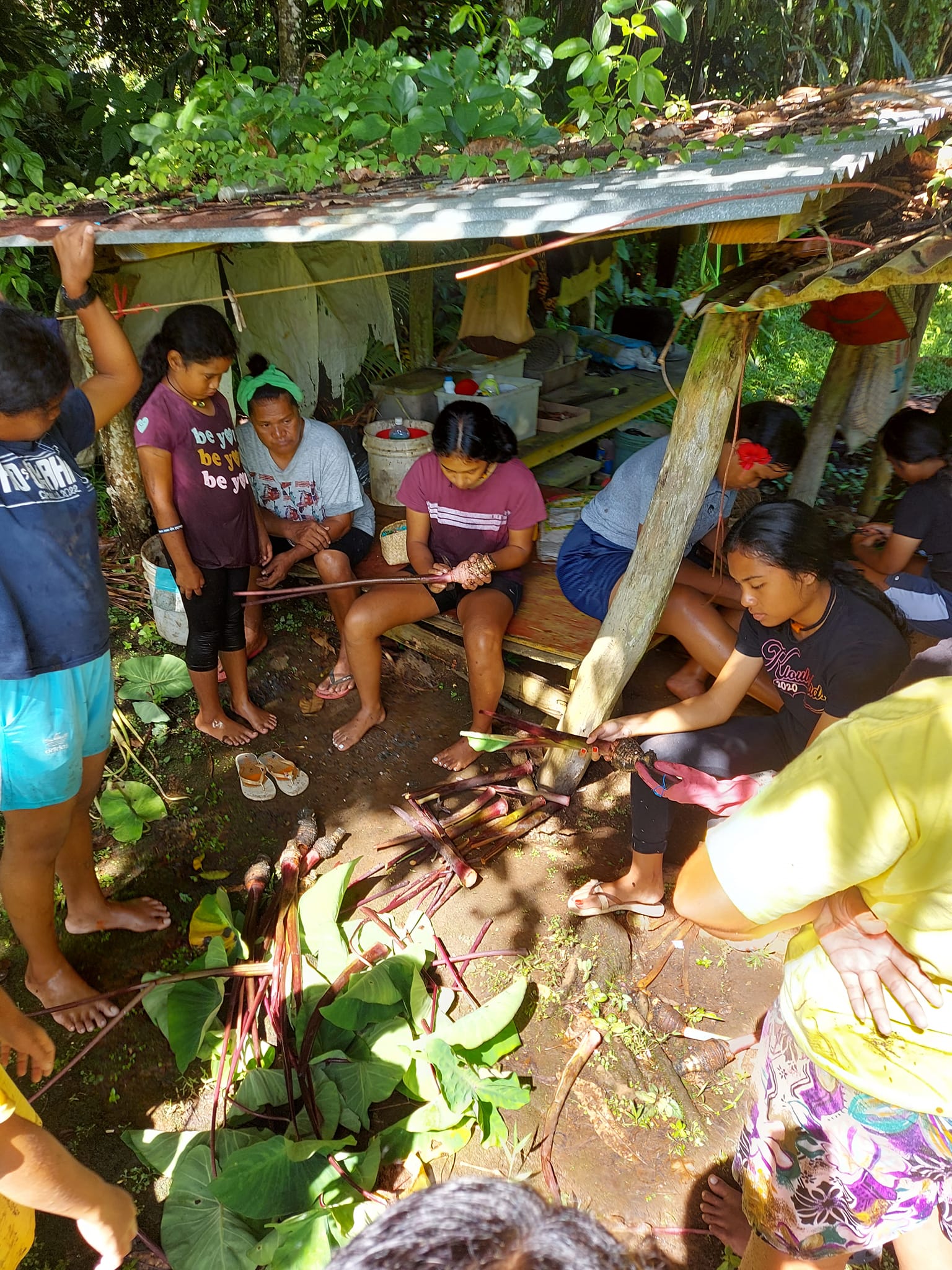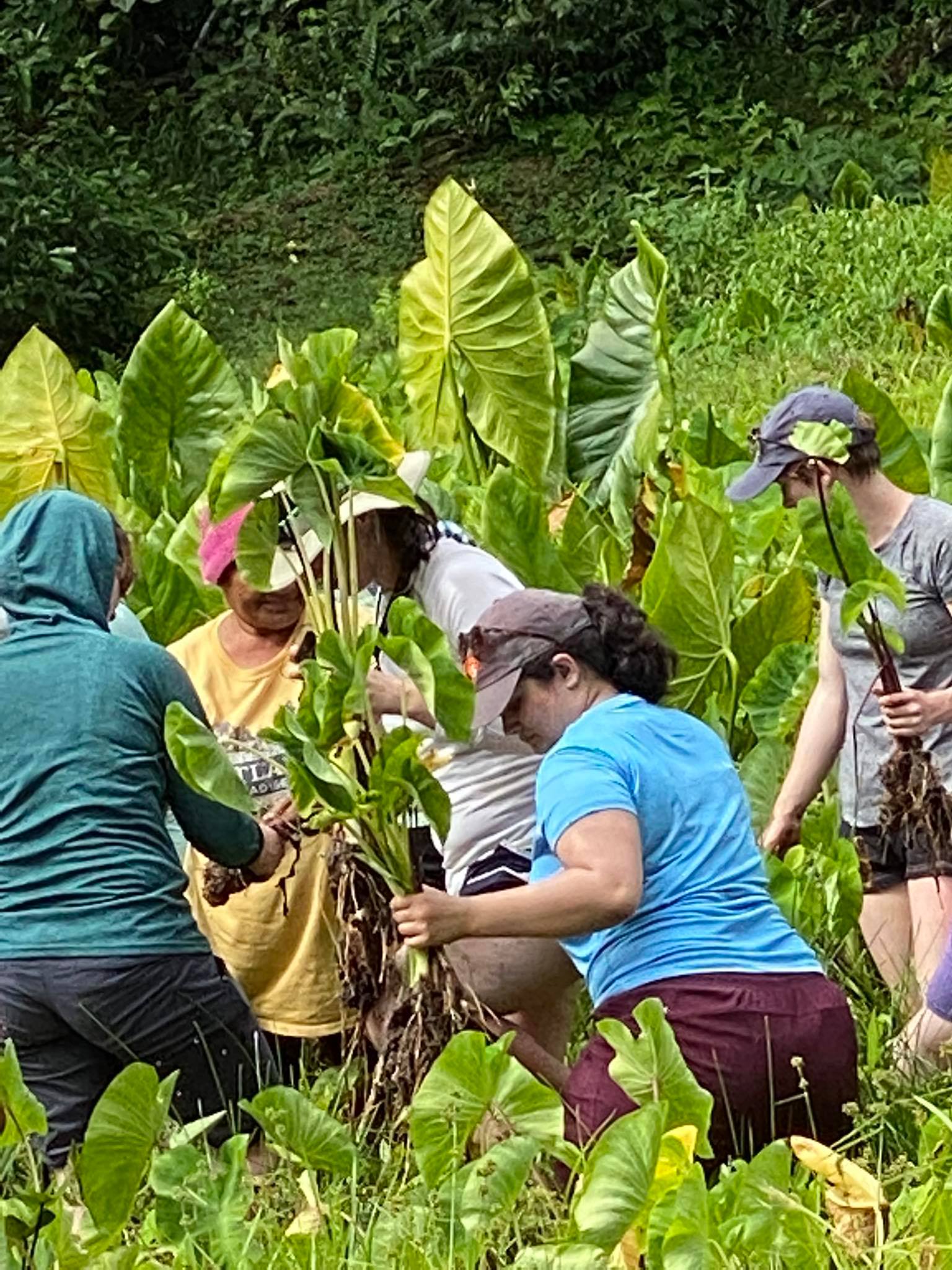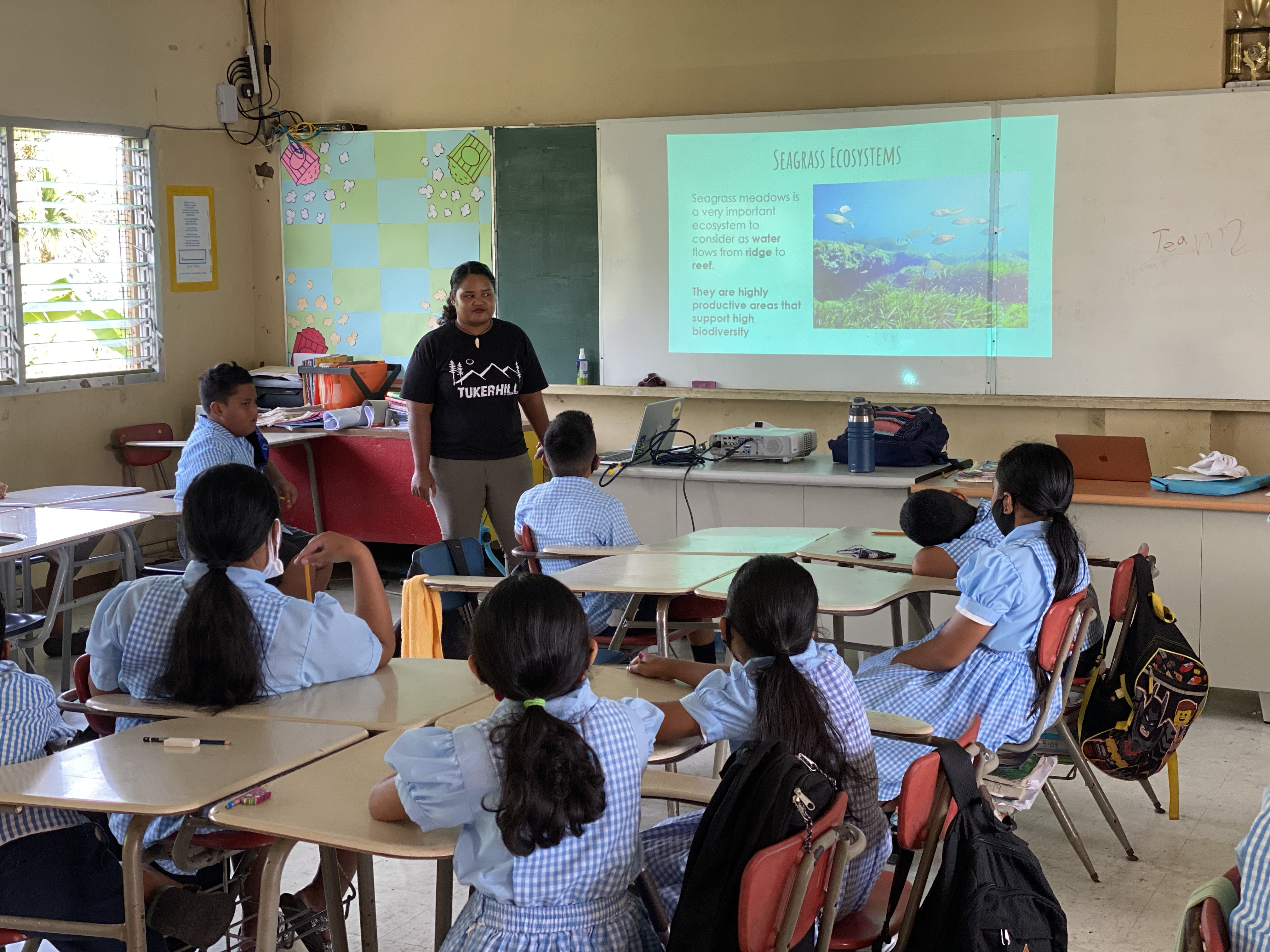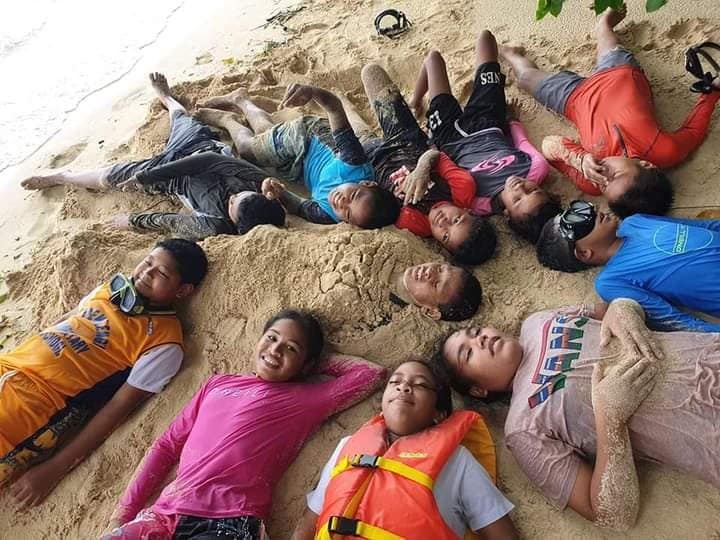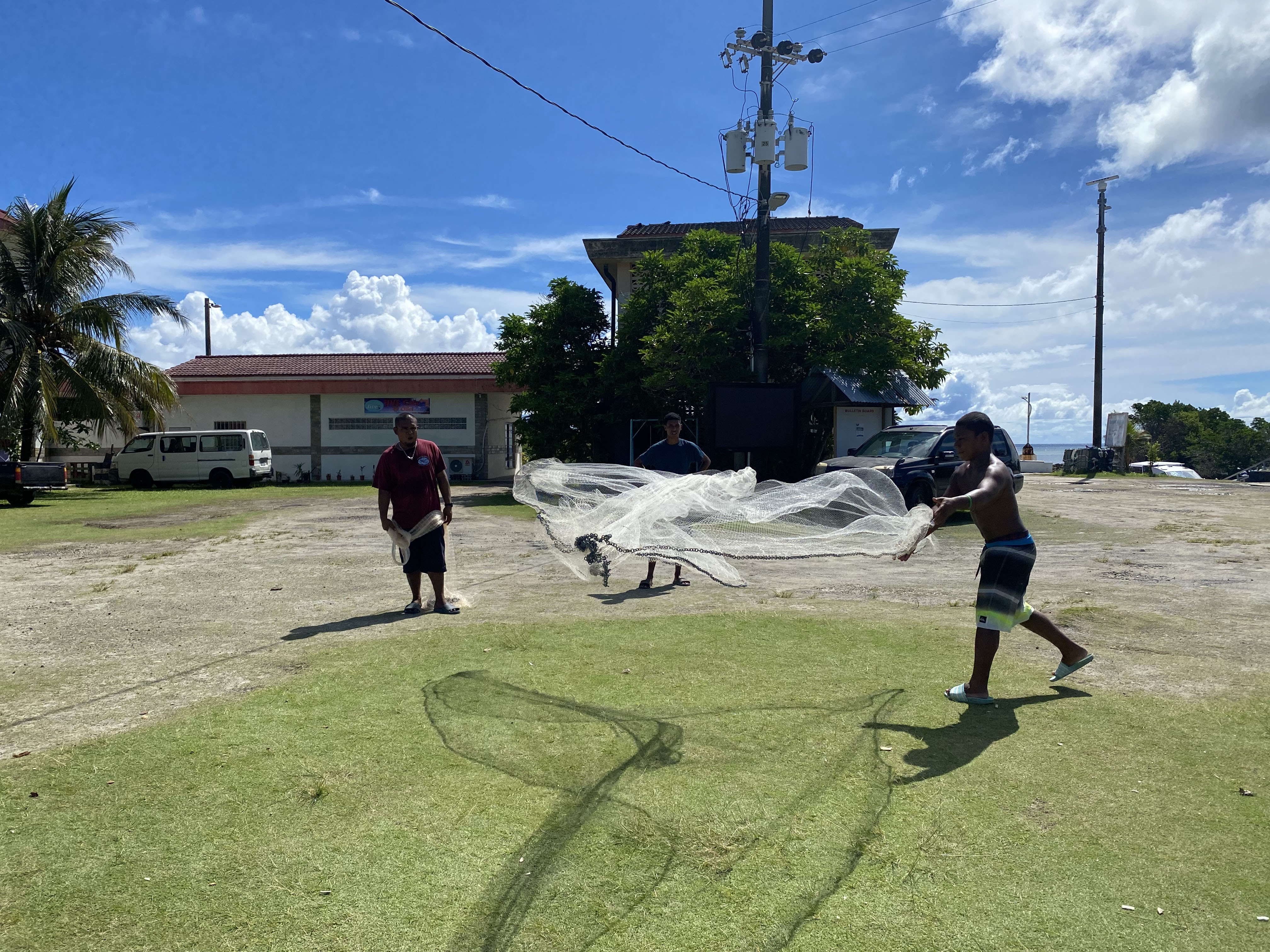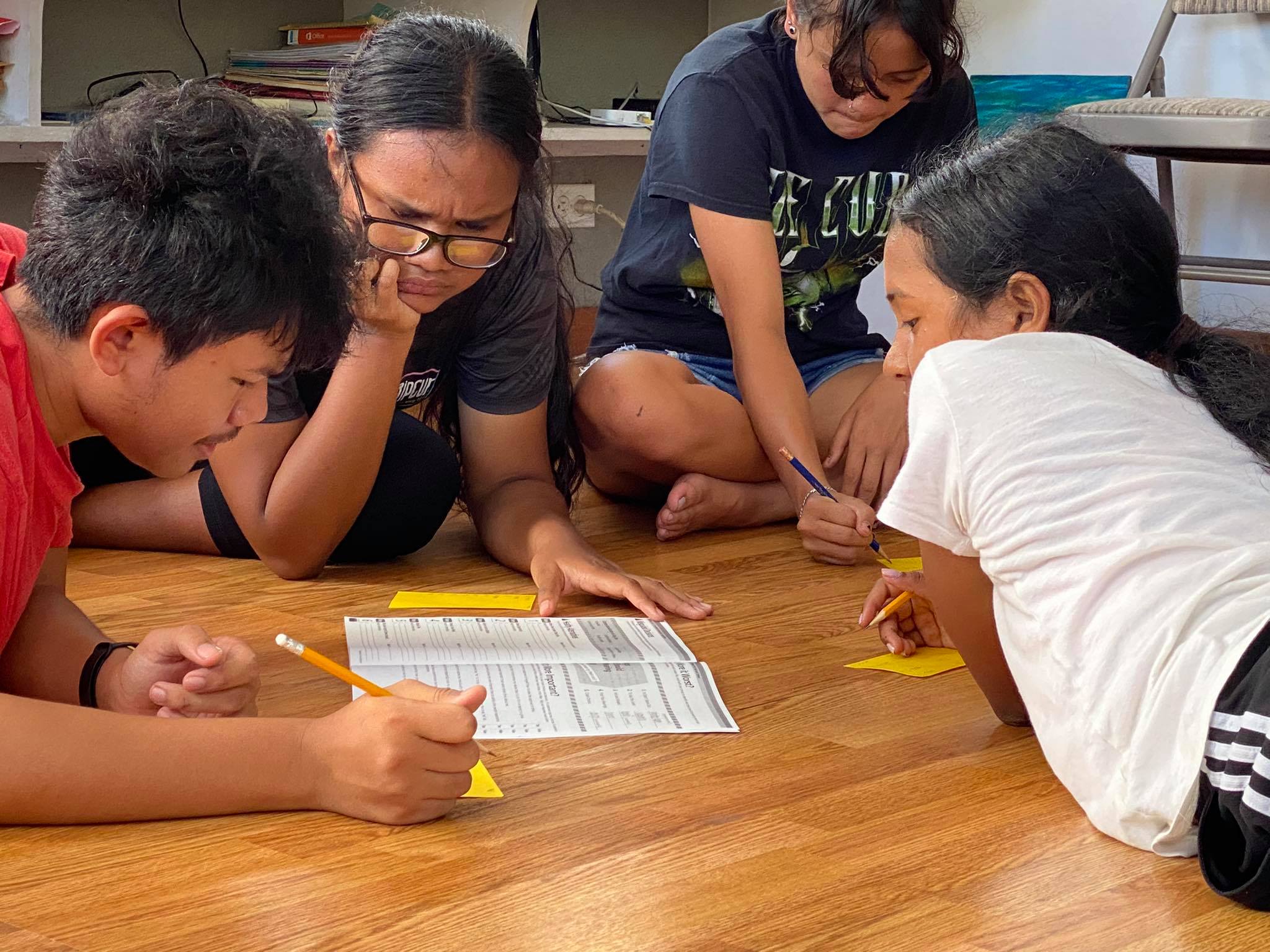Education Programs
Educational programs have been the heart of Ebiil’s programming structure since its inception. Regardless of the topic (e.g., ocean and land) teaching and learning for and with a diverse community of people remains as Ebiil Society’s ethos.
Over the years, various educational programs have been implemented. A few educational projects and activities remain year after year and play a large part in Ebiil’s curricular identity.
Camp Ebiil
In 2005, Camp Ebiil was created in response to environmental challenges and natural resource threats rooted in unsustainable practices such as over-harvesting. While the government sought to remedy this issue by developing policies and plans to protect natural resources, local communities struggled to accept this new concept while surviving on the very resources faced by these emerging environmental challenges. In planning and developing of the camp’s learning objectives, it became clear that many, if not all, of the indigenous knowledge and practices integrated processes that embraced environmental protection and conservation values and principles. Thus, Camp Ebiil has evolved in this very ideology of teaching environmental protection through cultural practices that respect “mother nature,” promoting peaceful actions – a way of life. Learn more about Camp Ebill HERE.
Decolonizing Research Class
In partnership with Stanford University, Ebiil Society Inc. launched the Decolonizing Environmental Social Science Research class in 2021. In this program, students learn decolonized methods of social science research and apply them in a variety of research pursuits related to the ocean, environment, conservation, community, and culture. More importantly, the program teaches and encourages Palauan youth to become researchers of their own traditional and indigenous knowledge and to inform relevant local solutions to issues impacting Palauans, their land, and their communities. See more about the program HERE.
Youth Alcohol/Drug Prevention Life Skill Building Program
In January 3, 2019, Ebiil Society began a Youth alcohol/drug prevention life skill building program. Following the completion of the course with group presentations to parents, the youth were invited to sail on the Maisu to Ngulu in May 2019. As alcohol abuse has been one of Palau’s biggest health concerns, and driving under the influence (DUI) is a serious problem, Palau in 2008 launched an anti-drunk driving campaign called “DeWill2Live”, named after DeWill Reklai, a young man who had been killed by a drunk driver. DeWill was an active youth who attended many of the earlier Ebiil Summer Camps. Even today, campaigns continue to promote awareness of drunk driving prevention among preteens and teens. The campaign also promotes awareness of drunk driving prevention among preteens and teens. Every year, Palau holds a candlelight vigil, promotes anti-drunk driving messages through a billboard roadside campaign, and sponsors school-based presentations featuring anti-DUI messages.
Mesei Education
A iukerelii…iang! Me ngungiang el beluu a Idesei, El di cheleblabel omouachel me a ralm a urrurt er ngii, Te kmo ralm a urrurt er ngii me a kibora mesei, Ea ki rodir a iaml leng telul obengakl, Me a telau el chosm a disesei meng buulii…iang! E lekong, o hui!
(In praise of the village of Idesei with great streams where clean water runs through, They say clean water runs through to the mesei in which to tend, one can take the medicinal plants with fragrances for ear ornaments, including shrubs. Oh yes, that is how it goes!)
-Traditional chant from “Traditional Knowledge and Wisdom”.
Taro cultivation has been estimated to have begun after A.D. 1200 to 1300. Traditional taro cultivation is very important to filter any sediment and nutrients of any erosion coming from areas upstream and upland from the mangroves. A mesei a delal a telid is a proverb which means that a taro field is the mother of life.
The practical designs of taro field structure, regulation of water flow and water management have persisted for many generations. The mesei, or cultivated taro fields, is where kukau (Colocasia esculenta), also referred to as purple taro, is cultivated. The traditional system of utilizing wetlands to produce kukau is ancient, distinctive, rich, and varied. Palau has a reservoir of traditional knowledge, practices, and skills related to taro. In the Palauan language while kukau refers to the purple taro corm, dait refers to the plant itself. There is also brak (Cytosperma taro), also known as yellow taro, and dechel (wetland plantation) left for brak cultivation are also important components in the mesei field cultivation system.
Palau legends mention a demi-god in Palau that went from village to village making taro patches. The last mesei she made was in Ngarchelong called Ngerekei. This name comes from the act of burying her ngarek (taro scraper) into the mesei when she completed creating it.
While in Ngarchelong, she cultivated her mesei in Ollei and named it Ngerekei. While in Ollei, she again married a man that she did not care for so she spent most of her time in her taro field, taking her time to gather leaves for fertilizer. The soil was deliberately and slowly prepared, ensuring she would not need to rush and go home early. As a result, mesei in Ngarchelong need to be well tended, utilizing the omesalo technique and using much leaf and grass fertilizers to result in quality taro. However, the mesei in Choll and other places can be prepared quickly, even carelessly, and yet still yield good taro. There is a belief that the Ngerekei mesei is sacred, and needs special care and no neglect.
When she was in Ollei, her husband came to visit and she began preparing for the marriage feast. The taro from Ngeaur was brought to Ollei for the feast. This was the first mur in Palau. After the feast, there were leftover kukau (purple taro corms) in Ollei, and they turned to stone. Even today after a short kayak ride, one can still see the leftover kukau from the mur.
Taro farming, an honored practice, is taught at most summer camp and youth education activities by older women in the community. Ebiil Society even receives requests from adults who would like to care for taro patches in coastal wetlands.
It is also said that Ngarchelong State has the best type of taro called kukau, due to the care that goes into the preparation, planting, and maintenance of the taro patches.
For details on specific programs related to ocean and land education, visit our Marine Program and Forestry Program pages.
